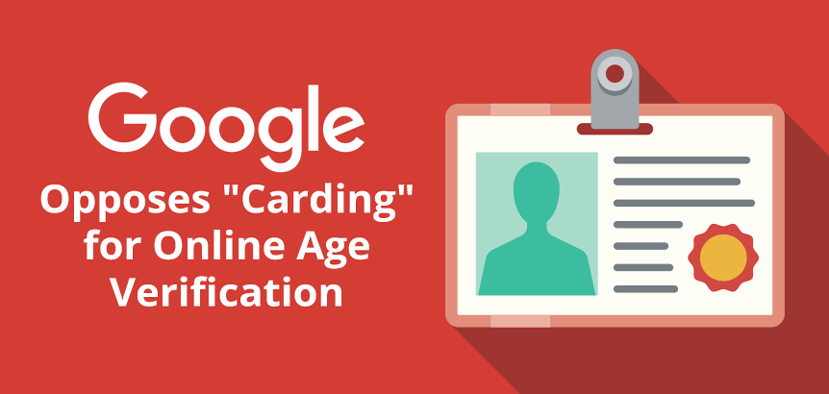Google Opposes Some Age Verification Measures
October 18, 2023
1 min 45 sec read
Well, this is gearing up to be a controversial topic, and it looks like Google will again find itself in the hot seat. The company responded to congressional child online safety proposals with a counteroffer on Monday, pleading with lawmakers to re-think potentially "problematic" proposed protections like age verification.

In Google's "Legislative Framework to Protect Children and Teens Online," Google says no way to state and federal laws that would require platforms to verify the age of users by forcing them to upload a government ID before an online service can be accessed.
Heck, some states even passed laws requiring platforms to get parental consent before letting anyone under 18 use their services. It's kind of like the bouncer at the front door of the club or the girl behind the counter who wants your ID for cold medicine.
Google's framework was introduced as many lawmakers, including Sen. Elizabeth Warren (D-MA), are throwing their hats in the ring with the Kids Online Safety Act, a bill to keep kids safe from dangerous content online.
Why, you might ask, would Google oppose keeping kids safe?
Google says it's not about that. They don't see the consent laws as protection, arguing that they only keep "vulnerable teens from accessing helpful information."
State legislatures nationwide have passed new laws regulating how kids under 18 can interact with the Internet, particularly in the last year.
Some states, like Louisiana, have drafted bills to keep kids from seeing porn by requiring age verification across the board, even for adults.
Google's proposal doesn't take issue with age verification for porn or gambling websites.
On Monday, YouTube published its own guidelines for protecting kids, indicating that the platform has taken "guidance from Google's policy framework. YouTube CEO Neal Mohan mentioned that the platform doesn't deliver personalized ads to kids and also gives parents a set of family controls to help them regulate content.
Many lawmakers are asking big tech companies to cease targeting children with their ads. In its framework, Google agrees that platforms should not deliver ads to "those under 18."
In a recent blog about the topic,
Kent Walker, President of Global Affairs, Google & Alphabet, wrote "as policymakers contemplate these issues, they should carefully consider the broader impacts of these bills and avoid side effects like blocking access to critical services, requiring people (including adults) to submit unnecessary identification or sensitive personal information, or treating an older teen the same as a younger child."
However it works out, Google and other companies are looking to play a balancing act between freedom of information and protecting those who need it.
Want to read this in Spanish?
Spanish Version >>
